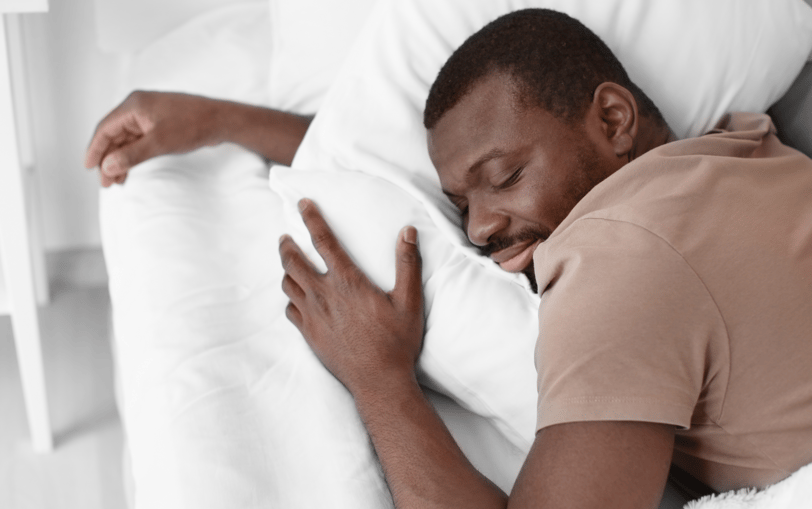The Impact of Cold Therapy on Sleep Quality
The article discusses how cold therapy can regulate body temperature, reduce stress and anxiety, enhance deep sleep, improve circulation, and stimulate melatonin production, all of which contribute to better sleep.
RB
3/4/20243 min read


Sleep is a fundamental aspect of our well-being, influencing everything from our mental health to our physical recovery. In the quest for better sleep, many people are turning to cold therapy, a method that involves exposing the body to cold temperatures to reap various health benefits. This article delves into the science behind cold therapy and its potential to enhance sleep quality.
Understanding Cold Therapy
Cold therapy, also known as cryotherapy, encompasses a range of techniques that involve exposing the body to cold temperatures for short periods. This can be achieved through ice baths, cold showers, cryotherapy chambers, cold therapy system, and other methods. The underlying principle is to trigger a natural response in the body that can lead to improved health outcomes, including better sleep.
The Science of Cold Therapy and Sleep
Regulating Body Temperature: Our body's internal clock, or circadian rhythm, naturally lowers our core temperature as bedtime approaches, signaling that it's time to sleep. Cold therapy can enhance this natural cooling process, making it easier to fall asleep and stay asleep. This is particularly beneficial for those who struggle with insomnia or have difficulty winding down at night.
Reducing Stress and Anxiety: High levels of stress and anxiety can significantly disrupt sleep patterns. Cold exposure has been shown to decrease cortisol levels, the body's primary stress hormone. By reducing stress and anxiety, cold therapy can help create a more conducive environment for restful sleep.
Enhancing Deep Sleep: Deep sleep, or slow-wave sleep, is crucial for physical recovery, memory consolidation, and overall health. Studies suggest that cold therapy can increase the amount of deep sleep we get, possibly due to its effects on the autonomic nervous system and hormonal balance.
Improving Circulation: Good circulation is essential for maintaining optimal body temperature during sleep. Cold therapy can improve blood flow, which helps in reducing inflammation and pain—common culprits of sleep disturbances. Enhanced circulation also ensures that the body can efficiently distribute heat, further promoting a comfortable sleep environment.
Stimulating Melatonin Production: Melatonin is a hormone that plays a key role in regulating our sleep-wake cycle. Exposure to cold has been linked to increased melatonin production, which can help regulate sleep patterns and improve overall sleep quality.
Practical Tips for Incorporating Cold Therapy into Your Sleep Routine
Cold Showers: Taking a cold shower 1-2 hours before bedtime can help lower your body temperature and signal to your brain that it's time to sleep. Start with lukewarm water and gradually decrease the temperature to avoid shock.
Ice Baths: An ice bath can have a more pronounced effect, but it's important to limit exposure to avoid hypothermia. Aim for a temperature of around 50-59°F (10-15°C) and limit the bath to 10-15 minutes.
Cooling Sleep Environment: Keeping your bedroom cool (around 60-67°F or 15-19°C) can mimic the effects of cold therapy and improve sleep quality. Consider using a fan, air conditioning, or cooling mattress pads to maintain a comfortable temperature.
Cold Packs: Placing a cold pack on your forehead or neck before bed can help lower body temperature and induce sleepiness. Make sure to wrap the pack in a cloth to avoid direct skin contact and potential frostbite.
Gradual Exposure: If you're new to cold therapy, start with milder temperatures and gradually decrease the temperature over time to allow your body to acclimate. This will help prevent shock and make the experience more tolerable.
Safety Considerations and Contraindications
While cold therapy can offer numerous benefits, it's important to approach it with caution. Individuals with certain medical conditions, such as Raynaud's disease, cardiovascular issues, or compromised immune systems, should consult a healthcare professional before trying cold therapy. Always listen to your body and avoid prolonged exposure to extreme cold, as this can lead to hypothermia or frostbite.
Cold therapy presents a natural and effective way to enhance sleep quality. By leveraging the body's natural responses to cold, this method can help regulate body temperature, reduce stress and anxiety, increase deep sleep, improve circulation, and stimulate melatonin production. Incorporating cold therapy into your sleep routine can be a simple yet powerful way to achieve a more restful and restorative night's sleep. Remember to start slowly, listen to your body, and consult with a healthcare professional if you have any underlying health concerns.
